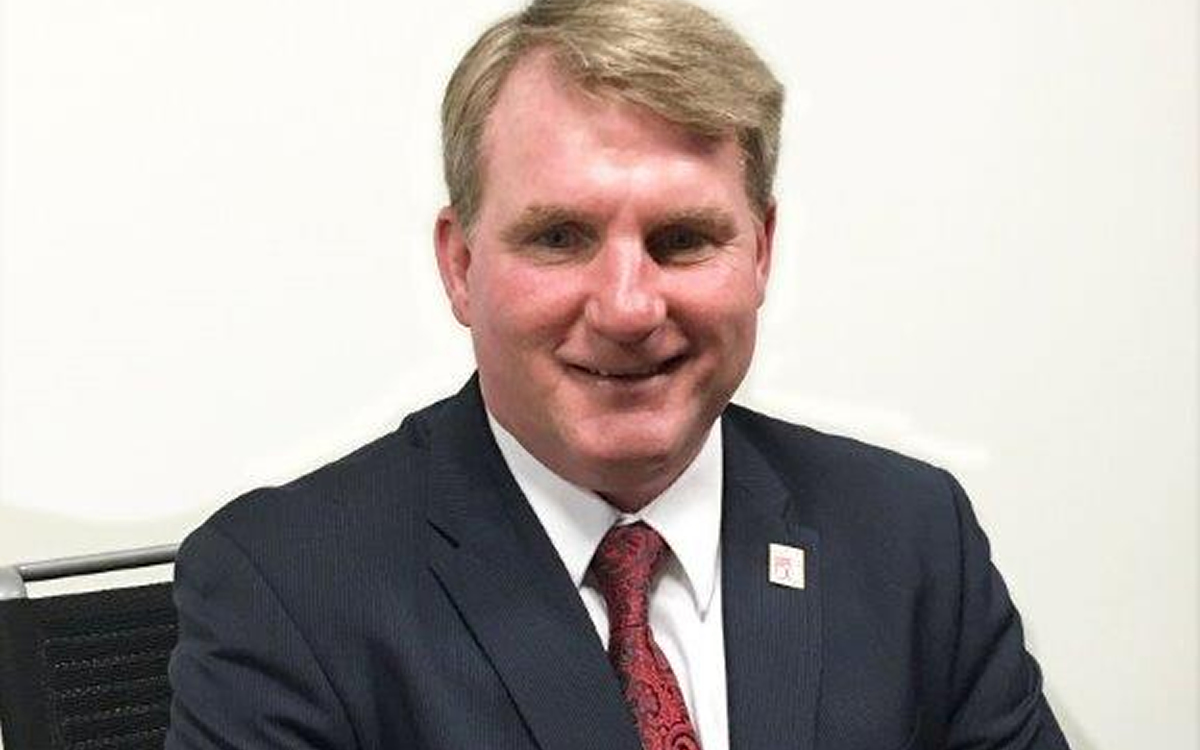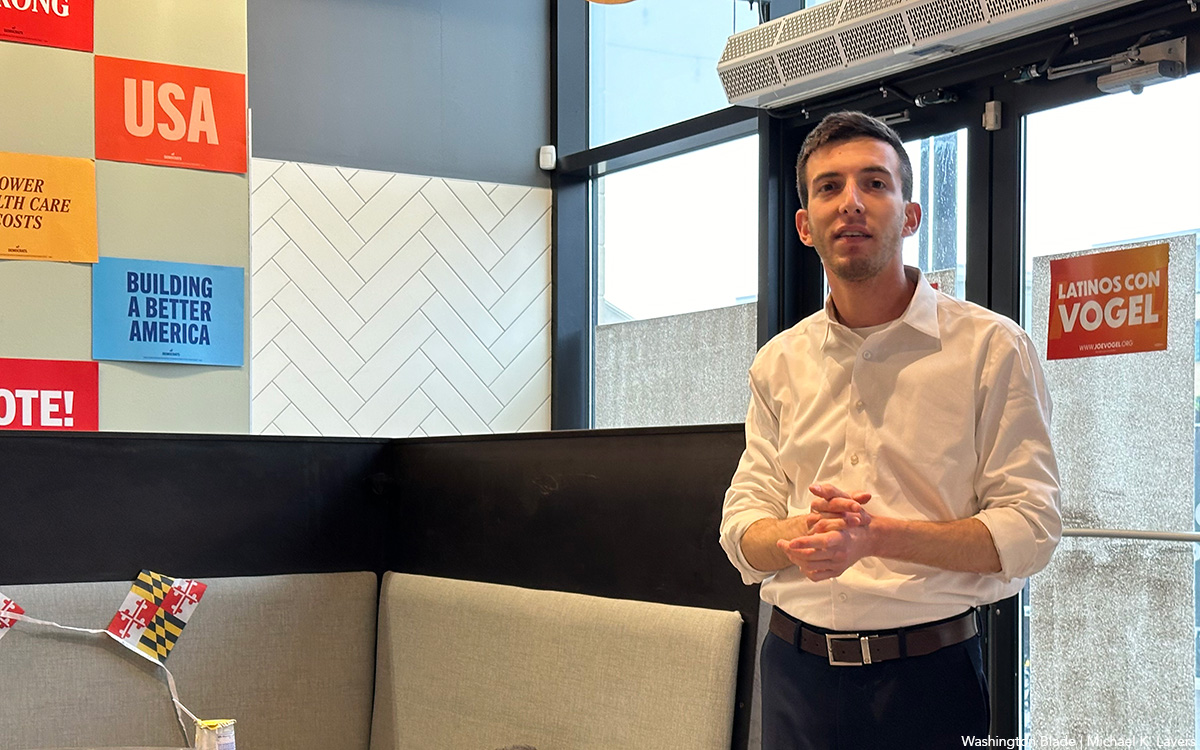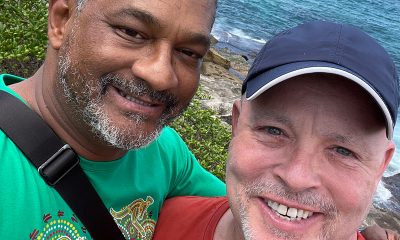Local
Someday we’ll be together?
Bi-national couple describes pain, anxiety of navigating U.S. immigration laws
You’re waiting on your partner and he’s late.
Most gays in that situation might be mildly irked, especially if a dinner reservation or theater tickets are at stake. Even if a few hours pass, you realize the likelihood that something serious has happened is small.
But when Kelly Cross, a local gay attorney, found himself waiting more than two hours at the Foggy Bottom Metro station last summer with no sign of his partner, who was scheduled to join him following a stint in Europe, it was a much more serious situation — it could have meant the end of their relationship.
Because the United States doesn’t recognize same-sex marriage at the federal level — where immigration is handled — bi-national same-sex couples have few options for staying together long-term in the U.S. or anywhere else. The 1996 Defense of Marriage Act (DOMA) further complicates the matter.
Cross and his partner, who declined to be identified because it could increase his chances of being deported, had tried to make a go of it in Europe, spending more than a year together in Dusseldorf, Germany, but a bounty of practical considerations — most pressingly Cross’s cancer-stricken mother in West Virginia — made staying there untenable. Cross returned in June 2009. But on the July day when his partner was scheduled to arrive at Dulles Airport, Cross’s panic increased as time went by.
“I was going around calling all kinds of people,” Cross says. “I thought he’d gotten pulled over and sent to the detention center where they’re double- and triple-checking everything probably. They want to make sure these folks are not going to stay in the U.S. They have no idea of his life here, his friends and family. It’s terrifying to know that you could be traveling and get the wrong immigration officer and not be able to get back into the country and I would not be able to go back and say anything and have no right to appeal anything. We’re very much at their whim.”
It had already been a nerve-wracking month for Cross, 31. Since he’d returned to the United States, he’d spent a frantic month trying to find someone willing to give his partner a job. Without that, there was no hope for the partner to stay. Though the partner’s background is in public policy, he had some experience doing financial analysis in Europe and that led to a D.C. opportunity but one that they say is more of a temporary fix than a long-term career plan.
For the couple, who got serious quickly after meeting at Apex in 2007, it was just one more in a string of seemingly endless obstacles. The relationship is strong enough, they say, that it’s worth the constant anxiety and uncertainty.
Cross’s partner, also 31, came to the states from his native Poland in 2003 to study public policy at the University of Northern Iowa. Disenchanted with Iowa, he came to D.C. for an internship in 2006. Though he liked the U.S., he was planning to return to Poland or possibly somewhere else in Europe — wherever he might find a good job. His plans changed radically when he met Cross.
“This is an everyday concern, how are we going to survive,” the partner says. “In our situation, we’re lucky that we have sufficient funds to live in this not-very-pleasant situation, but I just cannot imagine if somebody is gay and working for McDonald’s and he has a boyfriend who is working for Burger King. I don’t think they are going to make it. They won’t make it for sure because they’re not able. But if there’s a couple who’s straight, they have all the rights and all possibilities to make it because it will be possible. A law that gives them the opportunity, one piece of paper, a marriage license, that gives all kinds of rights and we don’t have it.”
The couple did enter a New Jersey civil union last summer, but they say it was purely symbolic and has little practical benefit. The partner says although he understands the arguments of those who will settle only for marriage, he’d be happy with a federally recognized civil union.
“That would be fine, I don’t give a shit,” he says. “Just anything so I don’t have this headache every morning. I would be perfectly happy with a civil union.”
Cross and his partner are, of course, not alone. Immigration Equality, a gay rights advocacy group working to end discrimination in U.S. immigration law against LGBT people, points to Williams Institute figures based on the 2000 Census that indicate there are about 36,000 bi-national same-sex couples struggling to stay together in the U.S. They’re hoping the Uniting American Families Act (UAFA), versions of which date back to 2000, will solve the problem. Because its wording says “permanent partner,” activists say it wouldn’t conflict with DOMA, though they’re hopeful — as are virtually all gay activists — that DOMA will eventually be repealed.
But how are the odds looking for UAFA? Immigration Equality’s communications director Steve Ralls is optimistic.
“Now that health care is officially behind us, there are indications that Congress and the White House are turning to immigration reform in the coming weeks and months,” Ralls says. “The White House has called key lawmakers to plot a way forward for comprehensive immigration reform and as part of that process, we’re working very hard to ensure that the Uniting American Families Act is part of that comprehensive bill.”
If it fails there — and many are opposed to its inclusion — it could pass on its own but Ralls says Speaker of the House Nancy Pelosi and U.S. Sen. Charles Schumer, supporters of the legislation, have told him they want to tackle a comprehensive bill before individual ones. U.S. Sen. Patrick Leahy (D-Vermont), who introduced UAFA in the Senate last year, is a key ally, Ralls says.
“He’s chair of the Judiciary Committee, which has enormous influence on what immigration bills move through Congress when,” Ralls said. “He remains willing and determined to pass UAFA as a standalone bill if necessary. That gives us a legislative leg up right out of the starting gate.”
But if it fails, what are the options for couples like Cross and his partner? They’re few, they say. Moving to Canada is not practical because the antitrust law Cross specializes in is not viable to practice there. Cross says he was lucky he spoke German and that his England-based international law firm was able to transfer him there, but he took a large pay cut to do it.
His partner becomes indignant at the mere suggestion of moving to Canada.
“This question is not really appropriate,” he says. “Who the heck is going to tell me where I should live? … I am entitled to decide where I should like to live because I’m your partner. We want to live here. Nobody’s going to tell me what I’m supposed to do with my life. I’m not a random person who’s just coming and pushing to want to settle in the D.C. area. We have our life here.”
And though the immigration problem is by far the couple’s biggest challenge, Cross says it’s compounded by other factors that flair up occasionally. They have cultural, interracial and homophobic issues that pop up, mostly externally. Cross encountered it often when he was trying to arrange a job for his partner.
“There’s a different sort of worth people ascribe to a heterosexual relationship that they don’t ascribe to homosexual ones,” Cross says. “There’s a presumption that if you’ve found a woman and are in love with a woman, then that must be love and there must be something there and you know, that’s your family. People attribute that and assume it’s real. But I think with gay couples there’s a mentality that yeah, you could find someone else or why go to the effort for this, there’s plenty of other people you could find. But it’s not true. When you love somebody, you love somebody.”
Cross says the challenges sometimes overwhelm his friends and colleagues.
“I think it’s just a combination of the whole thing,” he says. “Black, interracial, bi-national, gay — sometimes it’s just too much and people don’t know how to deal with it.”
District of Columbia
Taste of Point returns at critical time for queer students
BIPOC scholar to speak at Room & Board event on May 2

The Point Foundation will kick off May with its annual Taste of Point DC event. The event will be hosted at Room & Board on 14th Street and feature a silent auction, food tastings, a speech from a scholar, and more.
Point’s chief of staff, Kevin Wright, said that at Taste of Point, the scholars are the star of the show.
“People never come to an event to hear Point staff speak, they come to hear from the people most impacted by the program,” he said. “At its core Taste of Point is designed to center and highlight our scholars’ voices and experiences.”
This year, a Point BIPOC Scholar, Katherine Guerrero Rivera will speak at the event.
“It is a great opportunity to highlight the scholars out there on the front lines making impacts in almost every sector and job field,” Wright said.
Wright pointed out that this year especially is a pivotal time for LGBTQ students.
“In 2023, there were 20 states that passed anti-LGBTQ legislation,” he said. “By this point in [2024] we already have more.”
Wright said the impacts of those legislative attacks are far reaching and that Point is continuously monitoring the impact they have on students on the ground.
Last month, The Washington Post reported that states with anti-LGBTQ laws in place saw school hate crimes quadruple. This report came a month after a non-binary student, Nex Bennedict, died after being attacked at school.
“So, we see this as a critical moment to really step up and help students who are facing these challenges on their campus,” Wright said. “Our mission is to continue to empower our scholars to achieve their full academic and leadership potential.”
This year Point awarded nearly 600 LGBTQ students with scholarships. These include the flagship scholarship, community college scholarship and the BIPOC scholarship. When the foundation started in 2002, there were only eight scholarships awarded.
Dr. Harjant Gill is one of those scholars who said the scholarship was pivotal for him. Gill said he spent his undergraduate years creating films and doing activism for the LGBTQ community.
As a result, his academic record wasn’t stellar and although he was admitted into American University’s graduate program he had no clue how he would fund it.
Upon arrival to American he was told to apply for a Point scholarship and the rest was history.
“It ended up being the one thing that kept me going otherwise I would have dropped out,” he said. “Point was incredibly instrumental in my journey to becoming an academic and a professor.”
More than a decade later, Gill serves on the host committee for Taste of Point and is a mentor to young Point scholars. He said that he donates money yearly to Point and that when he is asked what he wants for a gift he will often tell his friends to donate too.
To attend the event on Wednesday, May 2, purchase tickets at the Point website. If you can’t attend this year’s Taste of Point DC event but would like to get involved, you can also donate online.
District of Columbia
Three of five LGBTQ candidates win race for DNC delegate from D.C.
32 candidates competed for 13 elected seats in party caucus

Three out of five known LGBTQ candidates running for election as delegates from D.C. to the Democratic National Convention won their races at an April 20 Democratic Party caucus election held at D.C.’s Walter Washington Convention Center.
Ward 2 gay Democratic activist John Fanning finished in first place with 140 votes and Ward 8 gay Democratic activist David Meadows finished in second place with 127 votes in a race in which six male candidates committed to supporting President Biden were competing for three male seats in a section of the city designated as Congressional District 1, which included registered Democratic voters in Wards 1, 2, 6, and 8.
Ward 7 gay Democratic activist Jimmie Williams won his race, finishing in third place with 200 votes in a race in which eight male candidates committed to President Biden competed for four male seats in the Congressional District 2 section of the city that included Wards 3, 4, 5, and 7.
Gay Democratic activist Felipe Afanador lost his race, finishing in sixth place with 47 votes in the Congressional District 2 election for male candidates backing Biden. It couldn’t immediately be determined which of the four wards in District 2 he is from.
The Washington Blade didn’t learn about Afanador’s status as an LGBTQ candidate until the Capital Stonewall Democrats announced it one day before the April 20 party election in an email statement.
In the Congressional District 2 race among female candidates, in which eight candidates competed for three female seats, transgender rights advocate and Ward 3 Democratic Party activist Monika Nemeth lost her race, finishing in sixth place with 49 votes.
The five LGBTQ candidates were among 32 candidates competing for just 13 elected delegate positions in D.C. D.C. will have a total of 51 delegates to the Democratic Convention, but the other 38 include elected officials and party leaders who are considered “automatic” or appointed delegates. The Democratic Convention will be held in Chicago Aug. 19-23.
Observers familiar with the April 20 party caucus election said Fanning, Meadows, and Williams had participated in local D.C. Democratic Party events and activities for a longer period than Nemeth and Afanador and appear to have been better known among Democratic voters in their respective wards as well as other wards. Those factors contributed to their receiving significantly more votes than most other candidates, observers have said.
In his candidacy statement posted on the D.C. Democratic Party website, Afanador said he worked on the 2020 Biden presidential election campaign in Pennsylvania. His LinkedIn page says in 2022 he began work in Washington for the Biden administration as an official in the U.S. Department of Agriculture.
Nemeth is a past president of D.C.’s Capital Stonewall Democrats, the city’s largest LGBTQ local political group, and has been an active member of the D.C. Democratic State Committee, the local party governing body. She served as a Biden delegate at the 2020 Democratic National Convention.
“It is important for our D.C. delegation to have strong LGBTQ representation,” Capital Stonewall Democrats said in its April 19 statement. “There are five LGBQ candidates running to be delegate, and Capital Stonewall Democrats asks that our members support each one,” the statement says.
“Unfortunately, they fell short, but they and all queer Democrats are welcome to attend and participate in convention events and activities sponsored by the national and local party,” Meadows told the Blade in referring to Nemeth and Afanador. “Our shared goal is to unite behind the Biden-Harris ticket to protect our LGBTQ rights from being dismantled by Donald Trump and the GOP,” Meadows said.
“Running for District Delegate is one of the most grassroots efforts,” Fanning told the Blade. “It’s very beneficial to align yourself on a slate with community leaders that have either previously run for District Delegate or have developed a constituency in their community from other civic engagements,” he said, referring to possible reasons for his, Meadows, and Williams’s election victory.
Aside from the D.C. elected LGBTQ delegates, two prominent D.C. LGBTQ Democratic leaders will be appointed as delegates to the 2024 Democratic National Convention in their role as members of the Democratic National Committee from D.C. They are Claire Lucas, a highly acclaimed Democratic Party and LGBTQ rights advocate and party fundraiser; and Earl Fowlkes, one of the lead organizers of D.C.’s annual Black LGBTQ Pride celebration and former president of the Capital Stonewall Democrats. Both are committed to supporting President Biden as the Democratic nominee for re-election.

GAITHERSBURG, Md. — Maryland state Del. Joe Vogel (D-Montgomery County) on Friday held a “Big Gay Canvass Kickoff” event at his congressional campaign’s headquarters.
LGBTQ+ Victory Fund Vice President of Outreach and Engagement Marty Rouse and John Klenert, a member of the DC Vote and Victory Fund Campaign board of directors, are among those who participated alongside members of Equality PAC. Vogel spoke before Rouse, Klenert and others canvassed for votes in the area.
“Joe brings a fresh new perspective to politics,” said Gabri Kurtzer-Ellenbogen, deputy field director for Vogel’s campaign.
Vogel, 27, is among the Democrats running for Congressman David Trone’s seat.
Trone last May announced his bid to succeed retiring U.S. Sen. Ben Cardin (D-Md.) in the U.S. Senate.
The Democratic primary is on May 14. Vogel would be the first Latino, the first gay man and first Gen Zer elected to Congress from Maryland if he were to win in November.
“We need a new generation of leadership with new perspectives, new ideas, and the courage to actually deliver for our communities if we want things to get better in this country,” Vogel told the Washington Blade last month during an interview in D.C.
-

 South America4 days ago
South America4 days agoDaniel Zamudio murderer’s parole request denied
-

 Maryland5 days ago
Maryland5 days agoMontgomery County police chief discusses arrest of trans student charged with planned school shooting
-

 Commentary5 days ago
Commentary5 days agoWorld ‘isn’t much different today’
-

 State Department18 hours ago
State Department18 hours agoState Department releases annual human rights report









